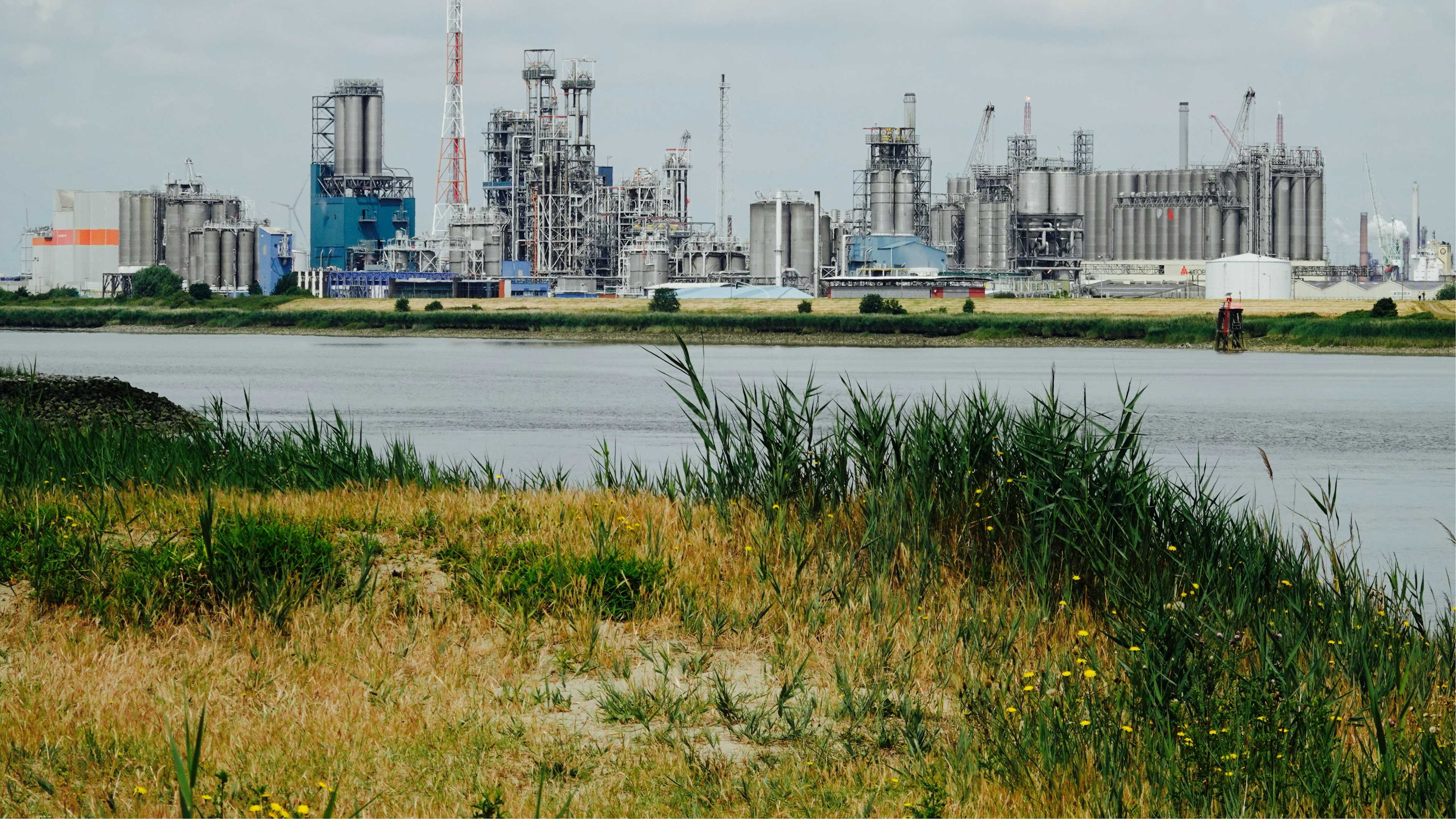$393M Settlement with Solvay Over PFAS Contamination
In June 2023, the New Jersey Department of Environmental Protection (NJDEP) responded to a lawsuit concerning environmental contamination by unveiling a groundbreaking $393 million settlement proposal with Solvay Specialty Polymers, a Belgian chemicals company, to tackle PFAS contamination in the state.
In June 2023, the New Jersey Department of Environmental Protection (NJDEP) released the details of a proposed settlement agreement with Solvay Specialty Polymers, a Belgian chemicals company, following a lawsuit over environmental contamination. Following a public comment period that opened on August 7 and ends on October 6, the proposed settlement agreement will be presented to the New Jersey Superior Court for approval as a binding Judicial Consent Order. If the settlement is approved, it will be the first settlement in New Jersey aimed at remediating environmental contamination by PFAS.
Solvay has operated a chemical plant in West Deptford, New Jersey for over thirty years. In 2020, the NJDEP filed a complaint against the chemical company alleging that the company has been discharging wastewater containing PFAS into the watershed and that it has not complied with directives from the state requiring the company to investigate, mitigate, and remediate natural resources contamination.
PFAS is the collective term for a large group of fluorinated compounds. They are a group of man-made chemicals that have been widely used in various industrial and consumer products since the 1940s. PFAS are known for their unique properties, such as being resistant to heat, water, and oil, which make them valuable in a range of applications. Some of the most common uses include non-stick coatings, stain and water repellents, and firefighting foam, especially those designed for suppressing petroleum-based fires.
The widespread use of PFAS has led to their presence in many natural resources, including air, water, soil, and wildlife. They are called “forever chemicals” because they are persistent, meaning they do not break down easily, and bioaccumulate in living organisms. One study found PFAS in the blood of 97% of Americans. There are growing concerns about their potential impacts on human health and the environment. Some studies have linked PFAS exposure to various health issues, including reproductive and developmental problems, thyroid and immune system dysfunction, and certain types of cancer.
Some studies had indicated potential health concerns as far back as the 1950s, and the EPA began to investigate in 1998. The EPA first passed PFAS regulations in 2002, requiring EPA notification if companies imported or manufactured certain PFAS chemicals. By this time, many chemical companies had stopped using some of the most common types of PFAS, called PFNA and PFOA, due to concerns over natural resources contamination. However, over 9,000 other types of PFAS have been identified.
In the 2020 NJDEP complaint, the agency alleged that Solvay is responsible for contaminating the Delaware River and surrounding natural resources with PFAS. One multi-year study conducted by the Delaware River Basin Commission from 2007-2009 determined that the level of PFNA concentration was the highest reported concentration in surface water in the world at that time. Although Solvay, which was the dominant user of PFNA in the area, stopped using products containing PFNA and PFOA in 2010, the NJDEP alleges that it continued discharging wastewater containing these and other PFAS into the Delaware River. In addition, the complaint alleged that Solvay has refused to share information on the replacement PFAS it uses because the company claims that information is confidential, trade secret, and proprietary.
Under the terms of the proposed settlement agreement, which does not require Solvay to admit any of the allegations, Solvay will investigate and remediate discharges from the West Deptford site and test and offer to treat public and private drinking water wells in the area. In addition, the company will pay over $3 million to NJDEP for prior costs incurred in remediating these sites, $75 million in natural resource damages, and $100 million to fund NJDEP PFAS remediation projects in the area. The total number is around $393 million, a historic figure. PFAS remediation is very expensive, and typically requires a combination of three types of treatment processes.
This is not the first time New Jersey has led the country in addressing the dangers of PFAS. In 2018, it was the first state to set maximum contaminant level (MCL) standards for PFAS. Twenty-one other states have followed suit. The past several years have seen a significant uptick in legislative activity targeting PFAS at the state and federal levels. In March 2023, the Biden administration announced that it was proposing the first-ever federal MCL standards for PFAS. In addition, the EPA issued a proposed rule regulating six new PFAS for the first time.
PFAS litigation is also ramping up outside of New Jersey. In the same month as NJDEP announced the proposed Solvay settlement, another historic settlement agreement was reached in a group of 4,000 lawsuits against chemical and manufacturing company 3M. The company will pay $10.3 billion over 13 years to municipalities nationwide to test for and remediate PFAS.
Although natural resource damages are the main focus of PFAS litigation, toxic torts and product liability claims related to PFAS contamination are also on the rise. Due to the ubiquity of PFAS in firefighting equipment, firefighters are common plaintiffs in toxic tort suits. An international union of firefighters filed suit earlier this year alleging that manufacturing withheld important safety information about the cancer risks of PFAS.
In PFAS litigation, experts and expert witnesses always play a critical role. Experts provide opinions, analysis, and testimony on how the chemicals work, the means by which they are manufactured and disposed of, the extent of any alleged contamination, and the health risks they pose. Experts can also present evidence of the systemic cost of PFAS contamination to demonstrate damages and the need for remediation. During the two years of litigation in the Solvay case, NJDEP attorneys worked with a team of internal and external experts as to the technical issues at issue, including the nature, extent, and valuation of the natural resource damages.
So far, consumer product liability claims related to PFAS have not been as successful as natural resources litigation. Continuing research into the impacts on human health, and increased regulatory action, however, make this a space for attorneys to watch.
About the author
Seth Mills, J.D.
Seth Mills, J.D., a career counselor at New York Law School, has a substantial background in legal education and public interest initiatives. Currently serving as the Director of Public Interest & Pro Bono Initiatives and an Adjunct Professor for the Law Office Externship Seminar at New York Law School, Seth focuses on guiding law students in their professional development and legal externship experiences.
Prior to these roles, Seth was a Legal Content Writer for the Expert Institute, contributing to the development and curation of legal content. At Lawline.com, Seth held multiple positions, including Senior Program Attorney and Managing Blog Editor, where he was responsible for creating legal educational materials and managing legal publications.
Seth's legal career began as an Associate Attorney at Sterling Analytics Group, providing a foundation in practical legal work. Additionally, Seth volunteered as a Policy Advocate with the Police Reform Organizing Project (PROP), demonstrating a commitment to public interest law.
In terms of education, Seth earned a J.D. cum laude from New York Law School, where they were involved in NYLS OUTlaws and the Criminal Law Society. Seth also holds a Bachelor of Arts in Linguistics from Bard College at Simon's Rock. Their educational and professional experiences reflect a deep commitment to legal education, public interest law, and the mentoring of future legal professionals.
A Sample Voir Dire: How To Qualify An Expert Witness
Download free white paperChallenging Opposing Experts: Advanced Research Techniques
Download free white paperCross Examining Expert Witnesses: The Ultimate Guide
Download free white paper
Subscribe to our newsletter
Join our newsletter to stay up to date on legal news, insights and product updates from Expert Institute.



